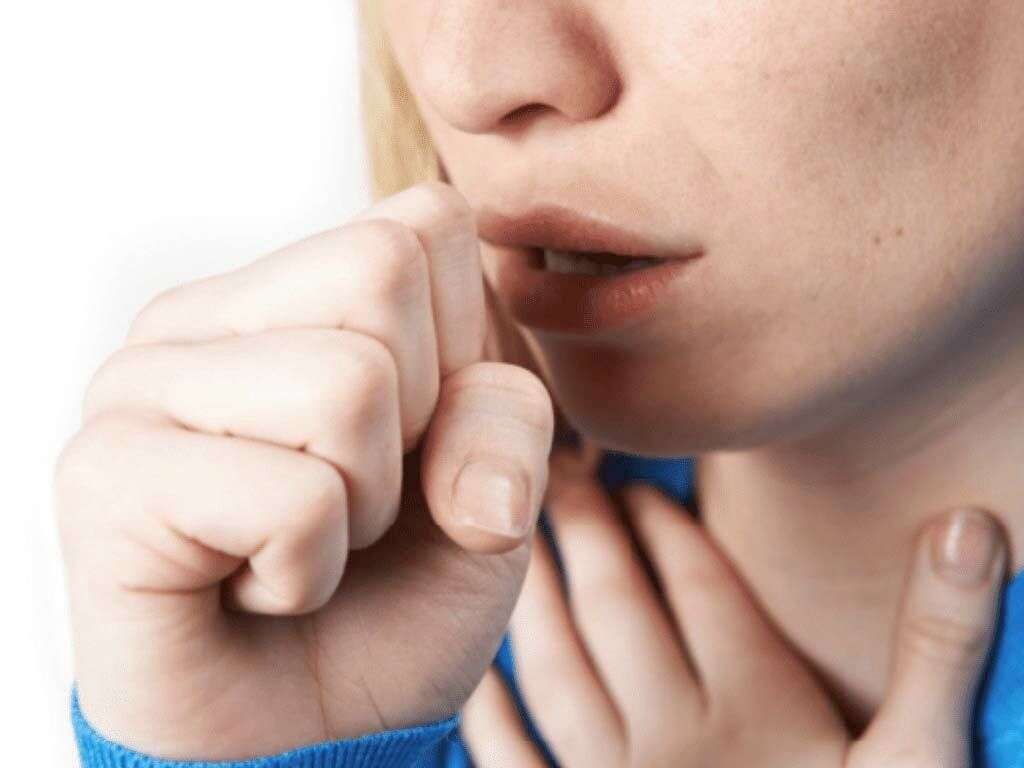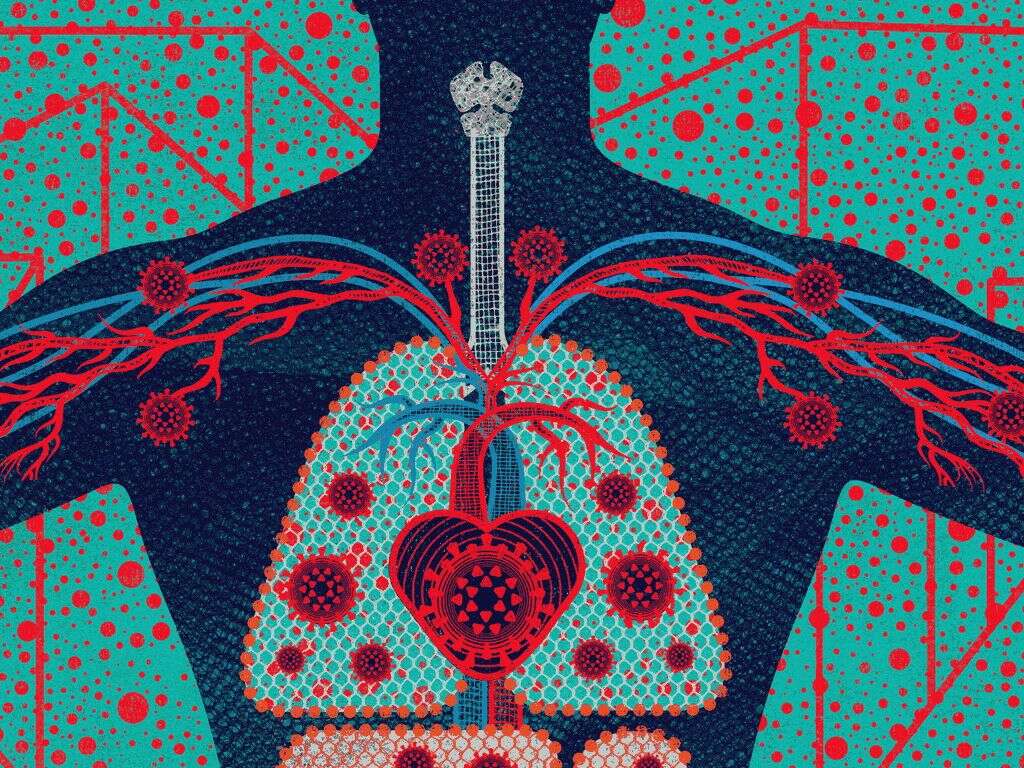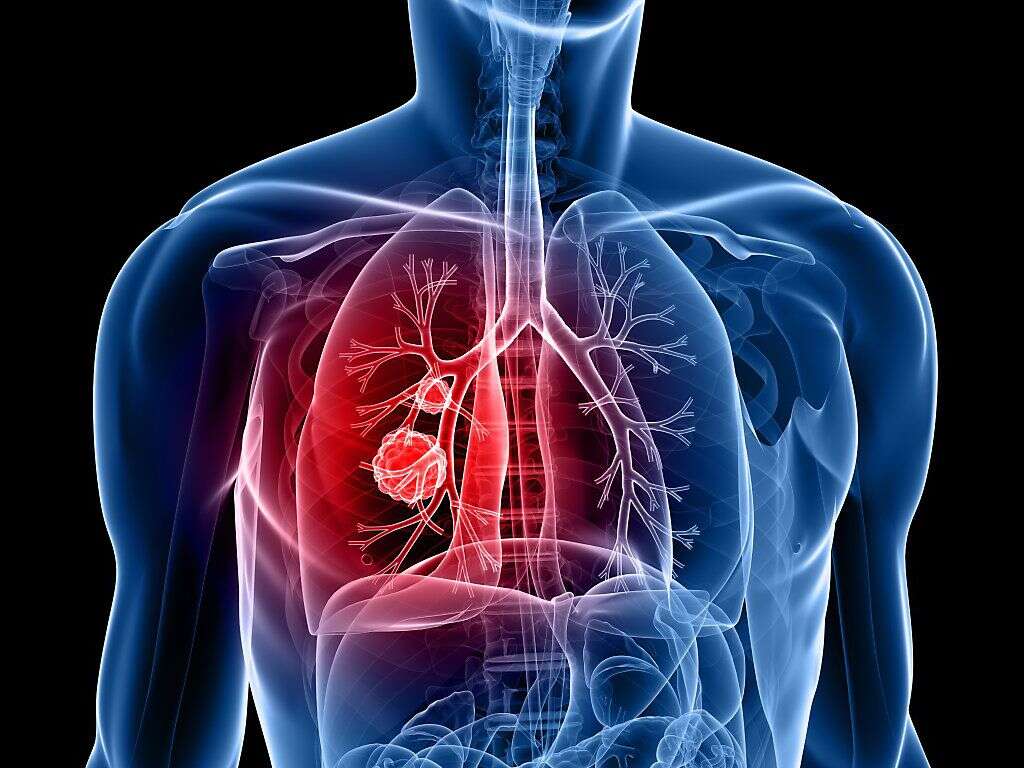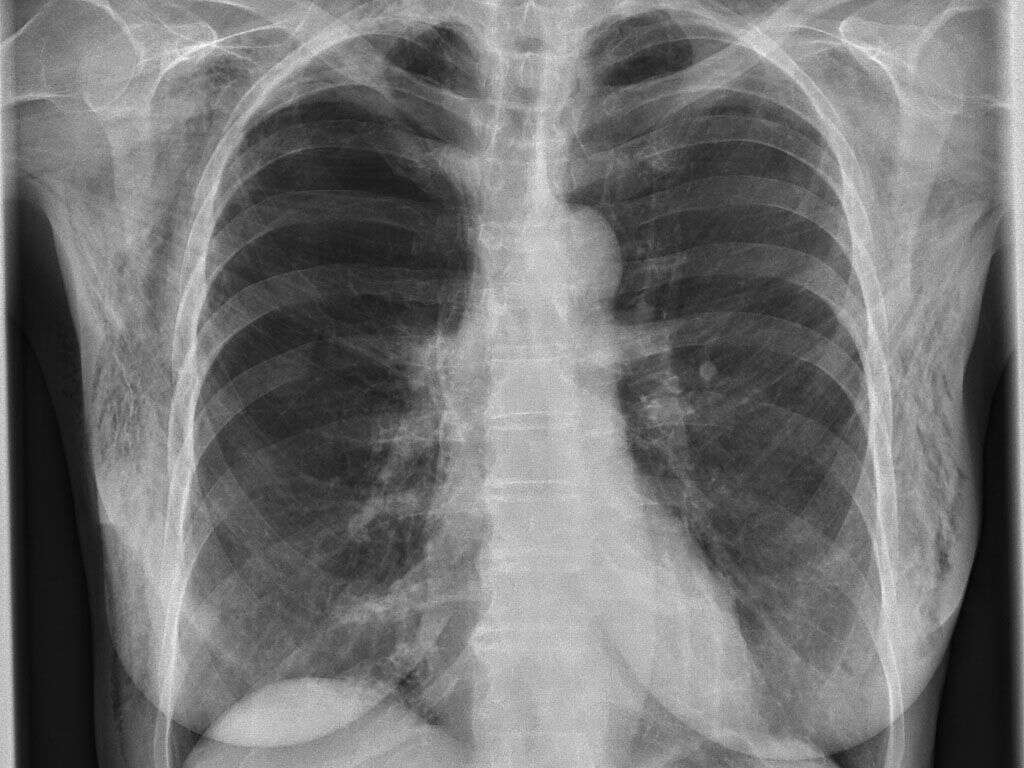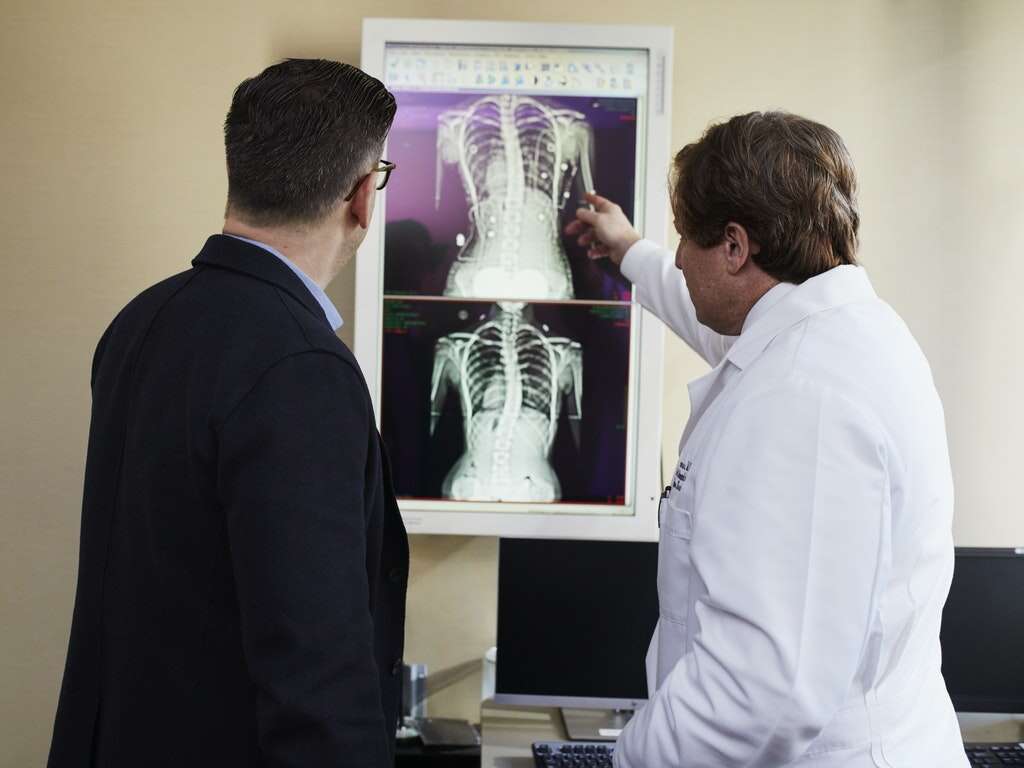10 Emphysema Symptoms
Emphysema is a serious and chronic lung condition in which the air sacs in the lung become weak. They lose their ability to contract after expanding and thus air gets stuck in the lungs. Eventually, they can burst, and this can make it difficult for you to get enough oxygen into the body. The most common cause of emphysema is from smoking. Up to 80% of all cases of emphysema are a result of long-term smoking of either cigarettes or other substances. Second-hand smoke, pollution, and industrial chemical fumes can also contribute to emphysema. It’s also possible to get it through a hereditary genetic deficiency.
Once you get emphysema, it can’t be reversed because the air sacs can’t be repaired. This means that the best way to deal with the condition is to avoid getting it in the first place. That means avoiding smoking, breathing clean air when possible (if these means getting a filtration device, then do so!) and making sure not to inhale second-hand smoke or chemical vapors.
Emphysema generally occurs in stages with various symptoms. In this article, we’re going to outline the most common symptoms of emphysema so you can decide whether or not you’ve got the condition and seek medical help if you deem it necessary.
Symptom #1: No Symptoms
It’s important to note that many people who are developing emphysema may not experience any symptoms at all. Oftentimes symptoms will not be experienced until more than 50% of the air sacs in their lungs have received irreversible damage.
If you’re a heavy smoker, remember that just because you’re not experiencing shortness of breath or other breathing problems doesn’t mean that you’re safe from emphysema. The problem can creep up on you, and once it does, it’s too late.
Symptom #2: Coughing
Coughing is one of the earlier symptoms that appears when someone is beginning to develop emphysema. This is a similar cough to that which smokers have, often referred to aptly as a smoker’s cough.
The main difference here is that the cough coming from emphysema will not disappear if you stop smoking. If you are smoking so much that you are experiencing a chronic cough, then it’s a wise idea to cut back or stop before that cough becomes permanent.
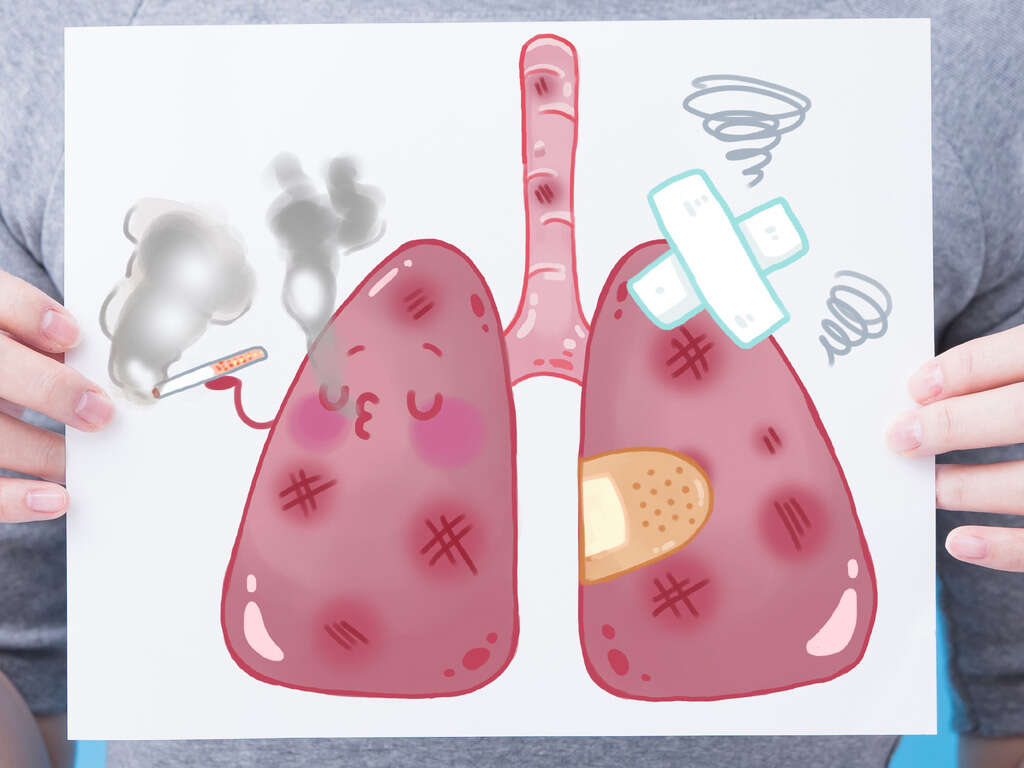
Symptom #3: Chest Tightness
Another common feeling that people with emphysema have to deal with is tightness in the chest. This is an uncomfortable feeling that often comes along with shortness of breath.
It can feel like your lungs are being slightly compressed, and it can be hard to take a deep breath.
Symptom #4: Shortness of Breath
One of the main issues associated with emphysema is shortness of breath. It can be difficult to take a deep breath, and even when you are taking a deep breath you might feel like you’re not getting enough oxygen in the body.
This is because the broken air sacs in your lungs are physically incapable of absorbing the amount of oxygen that your body requires. This can make it difficult for a person with emphysema to feel comfortable or fully oxygenated. In serious cases, people with emphysema will need a respirator to breathe for them so they get enough oxygen.

Symptom #5: Decreased Athletic Performance
People with emphysema often have a hard time maintaining their athletic performance. This is true of many people who smoke, but especially people who have emphysema.
The body requires oxygen to perform physically demanding tasks like running, lifting weights, or playing sports. If the air sacs that provide your blood with oxygen are broken, then you will be unable to get the oxygen to your muscles and organs. This will lead to a significant decrease in your ability to engage in high-intensity activity.
Symptom #6: Muscle Weakness
Another problem that’s associated with emphysema is muscle weakness. This is, again, because the body is unable to get enough oxygen. Just like the muscles are needed to perform intense athletic functions, they are also needed in our daily life.
If your muscles aren’t getting enough oxygen, then you may frequently feel over-exerted, even if you’re not doing much. It might seem like things are getting heavier. As your ability to use your muscles decreases they will also decrease in strength from being disused.

Symptom #7: Wheezing
One symptom commonly associated with emphysema is wheezing. Wheezing can be a high-pitched whistle or a lower sound that is heard when a person breathes in or out. It’s especially audible when the mouth is open.
Wheezing occurs when the lungs are damaged or there is an obstruction in the air flow. This can occur as the air sacs in the lungs break or deteriorate. However, wheezing is not always a sign of emphysema.
Symptom #8: Excessive Mucus
One thing that can happen to people suffering from emphysema is excessive mucus. Air contains moisture, and it’s important that we breathe out the air that we breathe in. If we physically can’t do that, then the moisture can build up in our lungs and lead to more mucus production.
Unfortunately, it can be difficult for patients with emphysema to expel this mucus. Generally mucus is coughed out, but patients with emphysema lack the capacity to cough out with their full potential. This can lead to a semi-permanent buildup of mucus in the lungs.
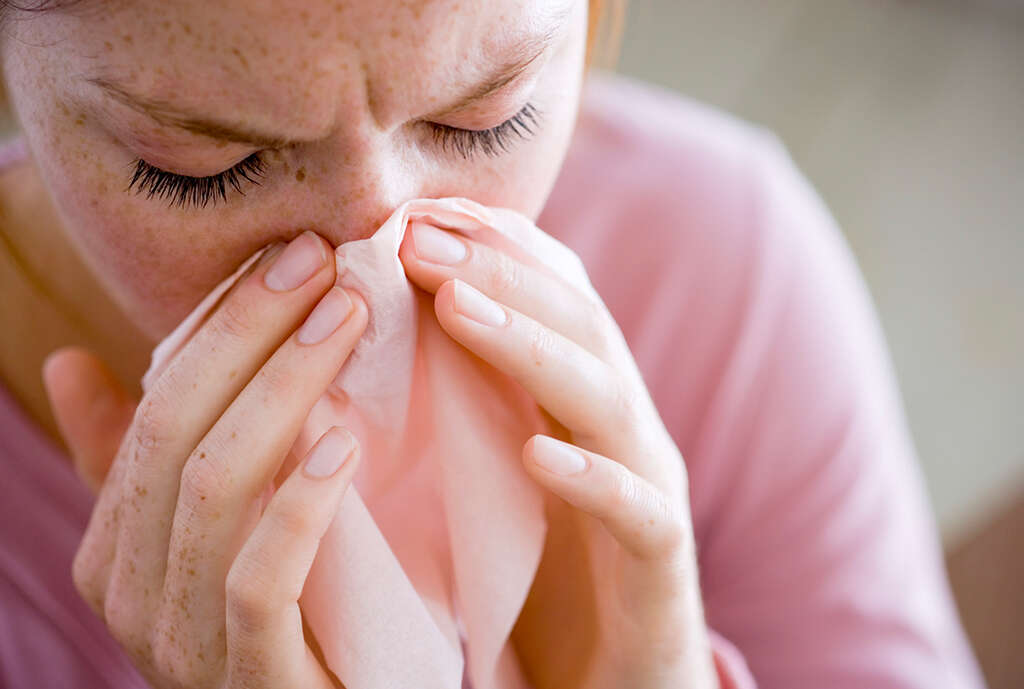
Symptom #9: Frequent Lung Infections
As a person develops more serious emphysema, they become more prone to lung infections. Bacteria and viruses are easily trapped in the lungs, and they can get stuck in the mucus that will be building up in the lungs and the airways. This makes a person much more susceptible to lung infections.
Lung infections can greatly exacerbate the symptoms of emphysema, which is already marked by various problems associated with the respiratory system. Heavier coughing, wheezing, and mucus production are to be expected if someone with emphysema gets a lung infection.
Symptom #10: Blue-Tinged Lips and Fingernail Beds
As the condition progresses, the lack of oxygen transported through the body can become quite serious. This can lead to a person developing a semi-permanent blue tinge on their lips and in the bed of their fingernails.
It’s fairly well-known that a body part that’s deprived of oxygen will turn blue, and this remains true for patients suffering from emphysema. This symptom usually only occurs in the later stages of the problem.




